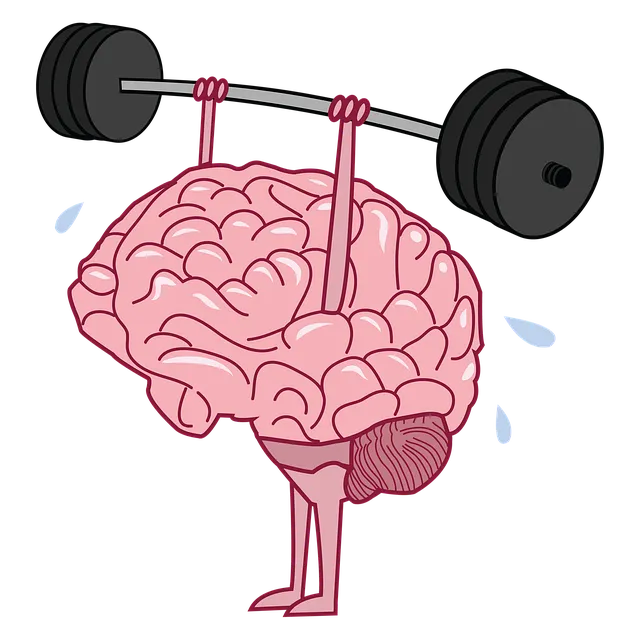Longmont Kaiser Permanente's mental health facility prioritizes cultural competency through comprehensive training programs for staff, equipping them to navigate and overcome cultural disparities in care. Using diverse learning methods including workshops, simulations, podcasts, and case studies, the facility enhances interactions with patients from various ethnic, racial, and cultural backgrounds. Regular feedback collection, data analysis, and tailored interventions ensure continuous improvement, fostering inclusive environments that lead to better patient outcomes and satisfaction at Longmont Kaiser Permanente mental health facility.
“Longmont Kaiser Permanente, a leading healthcare provider, recognizes the paramount importance of cultural competency in delivering quality care. This article delves into the multifaceted approach taken by the facility, especially in its mental health services, to address diverse community needs. We explore effective training programs designed to enhance cultural understanding among staff, with a focus on strategies tailored for Longmont Kaiser Permanente’s unique context. Additionally, we discuss measurement techniques to evaluate and continuously improve cultural competency initiatives.”
- Understanding Cultural Competency in Healthcare: A Necessity for Quality Care at Longmont Kaiser Permanente
- Mental Health Facilities and Their Unique Challenges: Serving a Diverse Population
- Designing Effective Training Programs: Strategies for Longmont Kaiser Permanente Staff
- Measuring Impact and Continuous Improvement: Assessing the Success of Cultural Competency Training
Understanding Cultural Competency in Healthcare: A Necessity for Quality Care at Longmont Kaiser Permanente

Cultural competency is an essential aspect of healthcare that Longmont Kaiser Permanente’s mental health facility recognizes as a cornerstone to delivering quality care. In today’s diverse society, understanding and respecting cultural differences can significantly impact patient outcomes, especially in a community with a rich mix of backgrounds. This concept goes beyond mere sensitivity; it involves mastering the skills to navigate and appreciate various cultural contexts, beliefs, and practices related to mental health.
At Longmont Kaiser Permanente, training programs focus on educating mental health professionals about different cultural norms and their potential influence on therapy. These initiatives include Self-Awareness Exercises to help providers recognize their own biases, as well as Risk Management Planning for Mental Health Professionals, which equips them with tools to manage challenges arising from cultural disparities. By integrating Stress Reduction Methods into the training, the facility empowers its staff to create safer and more inclusive environments, fostering better connections between healthcare providers and patients from diverse ethnic, racial, and cultural backgrounds.
Mental Health Facilities and Their Unique Challenges: Serving a Diverse Population

Mental health facilities, such as Longmont Kaiser Permanente mental health facility, face unique challenges in providing care to a diverse population with varied cultural backgrounds and experiences. These facilities often serve individuals dealing with complex issues like trauma, depression, anxiety, and other mental health disorders, many of which are deeply influenced by cultural factors. For instance, different cultures may have distinct understandings of emotional healing processes, emotional regulation techniques, and concepts of mental wellness.
Understanding these nuances is crucial for fostering effective communication and building trust between healthcare providers and clients from diverse communities. Training programs in cultural competency are essential to equip professionals with the knowledge and skills to navigate these complexities. Through workshops, simulations, and even a Mental Wellness Podcast Series Production, caregivers can learn how to adapt their practices to honour diverse perspectives, ultimately enhancing the quality of care delivered at facilities like Longmont Kaiser Permanente.
Designing Effective Training Programs: Strategies for Longmont Kaiser Permanente Staff

At Longmont Kaiser Permanente mental health facility, designing effective cultural competency training programs is paramount to delivering quality care. This involves integrating diverse learning methods tailored to staff preferences and knowledge levels. Workshops on stress management and social skills training can significantly enhance interactions with patients from various backgrounds, fostering a more inclusive environment. Incorporating interactive activities, case studies reflecting real-world scenarios, and peer discussions ensures that the training is engaging and applicable.
Regular feedback mechanisms should be built into these programs to gauge their impact. This allows for continuous improvement and adaptation based on staff experiences and evolving cultural landscapes. By promoting mental wellness through targeted workshops and organizational support, Longmont Kaiser Permanente can better equip its staff to navigate complex cultural dynamics, ultimately improving patient outcomes and satisfaction.
Measuring Impact and Continuous Improvement: Assessing the Success of Cultural Competency Training

Measuring the impact of cultural competency training is a vital step in ensuring its effectiveness and fostering continuous improvement. At Longmont Kaiser Permanente’s mental health facility, assessments are conducted to gauge the success of such programs. These evaluations often involve surveys, focus groups, and interviews with both staff and patients, providing valuable insights into the perceived benefits and areas for enhancement. By collecting feedback, the facility can identify specific cultural competency practices that resonate deeply with participants, such as Compassion Cultivation Practices, which promote emotional healing processes through mindfulness and understanding.
Through these assessments, Longmont Kaiser Permanente aims to go beyond mere awareness of mental health issues to foster a deeper Mental Health Awareness among its staff and patients. The data collected guides tailored interventions and training sessions, ensuring that the facility’s cultural competency initiatives remain responsive to evolving needs. This dynamic approach allows for continuous refinement, enabling the mental health facility to deliver more personalized and effective care in an ever-changing healthcare landscape.
Cultural competency training is not just a recommendation but a necessity for healthcare providers, especially in diverse communities like Longmont Kaiser Permanente. As highlighted, addressing unique challenges within mental health facilities is crucial to ensuring quality care for all patients. By designing effective training programs and measuring their impact, Longmont Kaiser Permanente can continuously improve its cultural competency, fostering an inclusive environment that respects and serves the diverse population it caters to, particularly in its mental health services.
